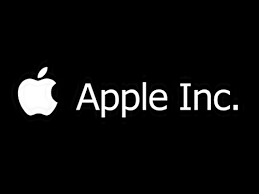
After influential shareholder Carl Icahn revealed that he had sold his entire stake in the company and as following extensive worries festered about a slowdown in iPhone sales, Apple Inc on Friday ended its worst week on the stock market since 2013.
There was a drop of 11 percent in the price of the shares of the company in the past five sessions. Shares of Apple Inc. is a mainstay of many Wall Street portfolios and the largest component of the Standard & Poor's 500 index.
In value of what is about equivalent to Cambodia's net wealth, the drop in the prices of the shares of the technology behemoth resulted in a reduction of its market capitalization by $65 billion.
Even though Apple investors pointed to the stock's relatively low valuation as a key reason to hold onto the stock, confidence in the Cupertino, California company has been shaken since posting its first-ever quarterly decline in iPhone sales and first revenue drop in 13 years on Tuesday.
"If you're going to buy Apple, you have to buy it for the long term, because the next year or two are going to be very tough," said Michael Yoshikami, chief executive of Destination Wealth Management, which owns Apple shares.
Apple has bet on China as a major new growth engine since the time it has been faced with lackluster sales of smartphones in the United States and even there the progress has been a let-down for the company.
Apple’s iBooks Stores and iTunes Movie service in China were shut down last week after the introduction of new regulations on online publishing which perhaps resulted in a slump in the revenues of the company from China by 26 percent during the March quarter.
Long-time Apple investor Carl Icahn told CNBC on Thursday that he had sold his stake in the company he previously described as a "no brainer" and undervalued, pointing to concerns that Beijing could make it difficult for Apple to conduct business in China.
In what is being considered to be cheap compared to its average of 17.5 over the past 10 years, the selloff has left Apple trading at about 11 times its expected 12-month earnings. S&P 500 stocks on average are trading at 17 times expected earnings.
"The tide is going out a bit, but it will probably improve in the fall with the launch of the next iPhone. This is an opportunity," said Pat Becker Jr, principal of Becker Capital Management, which also owns Apple stock.
While nine of the analysts tracked by Thomson Reuters recommended neutral ratings and none recommend selling, Wall Street remains positive as 36 analysts tracked by poll recommend buying Apple's shares.
The median of the analysts' price targets is $120, down from $130 at the end of March. The stock ended Friday at $93.75, down 1.14 percent.
(Source:www.reuters.com)
There was a drop of 11 percent in the price of the shares of the company in the past five sessions. Shares of Apple Inc. is a mainstay of many Wall Street portfolios and the largest component of the Standard & Poor's 500 index.
In value of what is about equivalent to Cambodia's net wealth, the drop in the prices of the shares of the technology behemoth resulted in a reduction of its market capitalization by $65 billion.
Even though Apple investors pointed to the stock's relatively low valuation as a key reason to hold onto the stock, confidence in the Cupertino, California company has been shaken since posting its first-ever quarterly decline in iPhone sales and first revenue drop in 13 years on Tuesday.
"If you're going to buy Apple, you have to buy it for the long term, because the next year or two are going to be very tough," said Michael Yoshikami, chief executive of Destination Wealth Management, which owns Apple shares.
Apple has bet on China as a major new growth engine since the time it has been faced with lackluster sales of smartphones in the United States and even there the progress has been a let-down for the company.
Apple’s iBooks Stores and iTunes Movie service in China were shut down last week after the introduction of new regulations on online publishing which perhaps resulted in a slump in the revenues of the company from China by 26 percent during the March quarter.
Long-time Apple investor Carl Icahn told CNBC on Thursday that he had sold his stake in the company he previously described as a "no brainer" and undervalued, pointing to concerns that Beijing could make it difficult for Apple to conduct business in China.
In what is being considered to be cheap compared to its average of 17.5 over the past 10 years, the selloff has left Apple trading at about 11 times its expected 12-month earnings. S&P 500 stocks on average are trading at 17 times expected earnings.
"The tide is going out a bit, but it will probably improve in the fall with the launch of the next iPhone. This is an opportunity," said Pat Becker Jr, principal of Becker Capital Management, which also owns Apple stock.
While nine of the analysts tracked by Thomson Reuters recommended neutral ratings and none recommend selling, Wall Street remains positive as 36 analysts tracked by poll recommend buying Apple's shares.
The median of the analysts' price targets is $120, down from $130 at the end of March. The stock ended Friday at $93.75, down 1.14 percent.
(Source:www.reuters.com)





